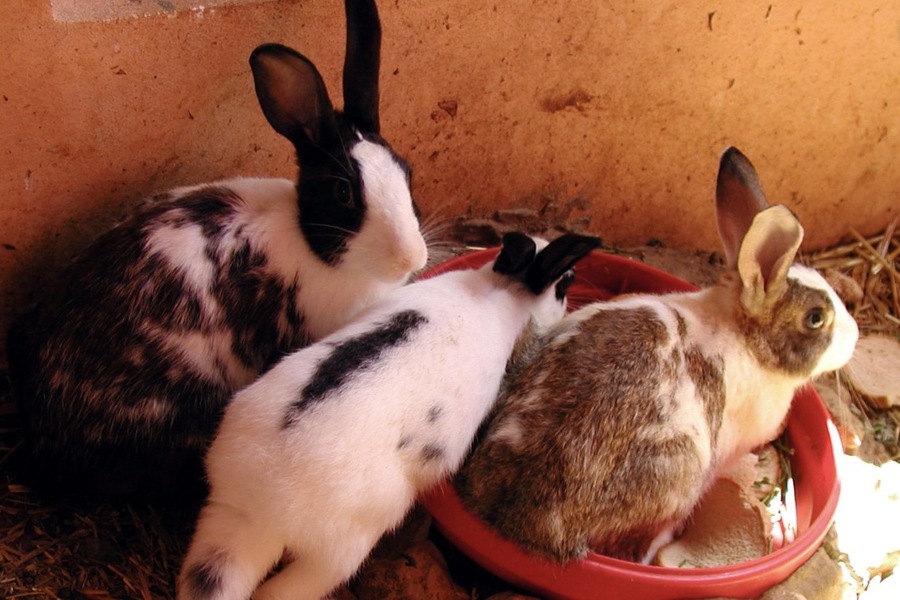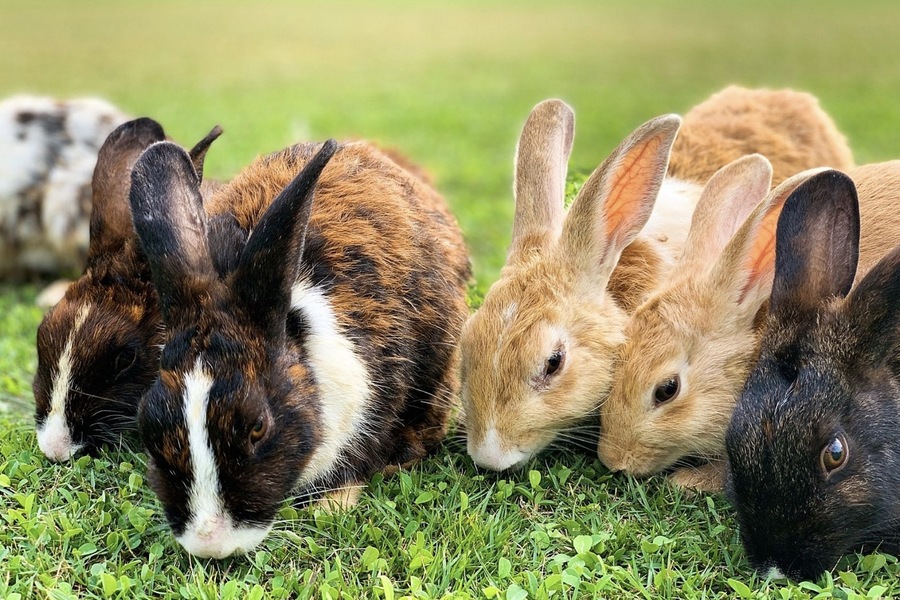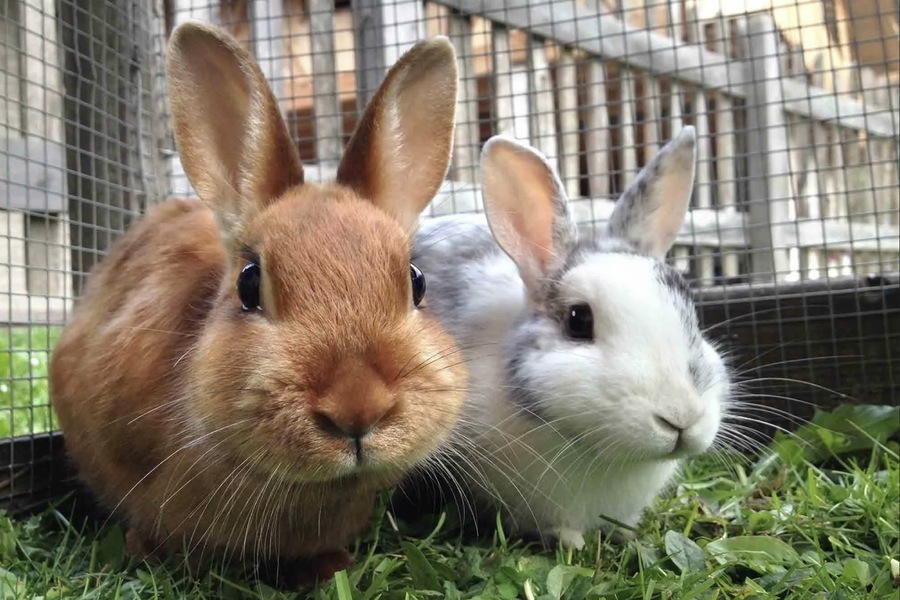In recent years, rabbits have become one of the most popular pet species, captivating pet owners with their incredible cuteness, playful nature, and fluffy appearance. Their sociable disposition and ability to bring joy to those who hold them make rabbits a beloved choice for many households. Among the numerous breeds, the Dwarf Rex, also known as the Mini Rex, stands out for its unique characteristics and charm. When considering a pet rabbit, places like Rancho Relaxo offer exceptional care services, ensuring these delightful pets are well-cared for, adding to their appeal.
Social Nature and Intelligence
Rabbits are inherently social animals, thriving on companionship and interaction. This social nature explains their strong attachment to humans and their ability to form deep bonds with their owners. Rabbits are not only affectionate but also intelligent and resourceful. Their curiosity and well-developed memory allow them to engage with their environment and owners in meaningful ways. With proper care and attention, rabbits can become loyal, kind, and true friends, making them excellent pets for those seeking a companionable animal.
The Dwarf Rex: An Overview
The Dwarf Rex is an ornamental rabbit breed renowned for its soft velvet fur and good-natured temperament. This breed, also referred to as the Mini Rex, has distinct physical and behavioral traits that endear it to rabbit enthusiasts.
Breed Standards:
– Average Weight: 0.6–1.5 kg
– Head: Short and large
– Ears: Erect, rounded at the tips, with a length of 45–55 mm
– Mustache: Short and broken
– Body: Stocky and cylindrical, with an indistinct dewlap
– Tail: Short
– Hind Legs: Noticeably longer than forelimbs
– Coat: Short and dense, with hairs measuring 1.4–1.7 cm in length

Color Variations of the Dwarf Rex
The Dwarf Rex comes in various colors, each with its own unique appeal:
– Black: A black coat with hairs of different shades, lighter belly, brown eyes, and white edging around the eyes and nose. The paws are white on the inside.
– White: Smooth coat without hairs of a different shade, blue or red eyes. The fur lacks shine.
– Ginger: Bright shine with a lighter abdomen and inner paws. Disadvantages include overly variegated colors.
– Brown: Chestnut-colored, velvety fur with a blue undercoat. Brown eyes with a ruby tint.
– Other Colors: Chinchilla, spotted, Himalayan, opal, red, tortoiseshell, lilac, pointed sable, seal, silver marten, smoky pearl.
Characteristics of the Dwarf Rex
The Dwarf Rex exhibits several distinctive characteristics:
– Shyness: May bite if startled by sudden movements or loud noises.
– Good Nature After Adaptation: Takes time to acclimate to new environments but becomes very good-natured and gets along well with family members and other pets.
– High Intelligence and Trainability: Quickly learns its name and how to use a litter tray.
– Independent Disposition: May try to establish dominance, requiring clear boundaries from the start.
Care and Maintenance of the Dwarf Rex
Proper care is essential to ensure the health and happiness of a Dwarf Rex rabbit. The following guidelines will help provide a suitable environment and diet for this breed:
Home Environment
– Cage: A spacious, durable cage with a solid floor and closely spaced bars. Equipped with a closed drinking bowl, heavy ceramic feeder, toilet tray, and a house for privacy.
– Location: Place the cage in a shaded, well-ventilated area, away from drafts, direct sunlight, and heating appliances.
– Flooring: Covered with bedding that is changed every 2-3 days.
– Walking: Regularly let out of the cage for exercise. Hide electrical wires to prevent injuries and property damage.
Hygiene Procedures
– Eyes: Daily checks for redness or unusual discharge, wiped with a cloth soaked in warm water.
– Ears: Regularly cleaned with cotton wool moistened with a weak solution of boric acid.
– Fur: Weekly combing with a brush with natural bristles and protection from getting wet.
Nutrition
– Diet: Fresh, slightly dried grass, branch feed, silage, field and meadow hay, ready-made feed, seeds, and dried fruit (in winter). Avoid legumes, tomatoes, mushrooms, eggplants, sweets, onions, garlic, and certain types of cabbage (red and white).
– Water and Mineral Stone: Always have fresh water and a mineral stone available in the cage.
Additional Care Activities:
– Trimming claws
– Cleaning the cage
– Washing the tray
– Replacing water in the drinking bowl
– Bathing
– Taming
Professional Care Options
For those who are away from home often, professional care services can ensure your rabbit receives the attention it needs. Rancho Relaxo, a pet hotel in Dubai, offers comprehensive care for rabbits, including all necessary food, water, walking, and other procedures at affordable prices. For instance, a 15-night boarding for rabbits costs AED 1,275.
Health and Wellness Considerations
Ensuring the health and wellness of your Dwarf Rex involves regular veterinary check-ups and a proactive approach to monitoring their physical and emotional well-being.
Regular Vet Visits
– Schedule annual check-ups with a rabbit-savvy veterinarian.
– Keep up-to-date with vaccinations and preventive treatments for common ailments.
Common Health Issues
– Dental Problems: Regularly check for overgrown teeth, which can cause eating difficulties and pain.
– Digestive Issues: Ensure a diet high in fiber to promote healthy digestion and prevent gastrointestinal stasis.
– Obesity: Avoid overfeeding and ensure regular exercise to prevent obesity-related health problems.
Mental Stimulation
– Provide toys and activities to keep your rabbit mentally stimulated and prevent boredom.
– Interactive playtime and training sessions can enhance the bond between you and your rabbit.

Socializing and Bonding
Building a strong bond with your Dwarf Rex involves understanding their social needs and providing a nurturing environment.
Social Interaction
– Spend quality time interacting with your rabbit daily.
– Encourage gentle handling and positive reinforcement to build trust and affection.
Companionship
– Consider getting a companion rabbit to provide social interaction, especially if you are frequently away from home.
– Ensure any introductions to new rabbits are gradual and supervised to prevent aggression.
Enrichment and Play
Enriching your Dwarf Rex’s environment with various activities and toys can significantly enhance their quality of life.
Safe Toys
– Provide chew toys made of safe, non-toxic materials to satisfy their natural chewing instincts.
– Offer tunnels, hideouts, and platforms to encourage exploration and play.
Outdoor Play
– Supervised outdoor playtime can provide fresh air and additional exercise.
– Ensure the play area is secure and free from potential hazards or predators.
Breeding and Raising Kits
Breeding Dwarf Rex rabbits requires careful consideration and knowledge to ensure the health and well-being of both the parents and the kits.
Breeding Considerations
– Only breed healthy, well-tempered rabbits with known pedigrees to avoid genetic health issues.
– Consult with a veterinarian or a knowledgeable breeder for guidance on the breeding process.
Raising Kits
– Provide a warm, safe, and quiet environment for the doe (female rabbit) to give birth and care for her kits.
– Monitor the kits’ growth and development, ensuring they receive proper nutrition and care.
Conclusion
The Dwarf Rex rabbit is a delightful and intelligent pet that requires proper care and attention. By understanding their needs and providing a suitable environment, you can enjoy a loving and loyal companion for many years. Whether you’re a first-time rabbit owner or an experienced enthusiast, the Dwarf Rex’s charming personality and endearing characteristics make it a wonderful addition to any household. By investing time and effort into their care, you can ensure a happy and healthy life for your Dwarf Rex rabbit, enriching both your life and theirs with companionship and joy.

I am a Junior Web Developer for Oswald Technologies. I am an accomplished coder and programmer, and I enjoy using my skills to contribute to the exciting technological advances that happen every day at Oswald Tech.
